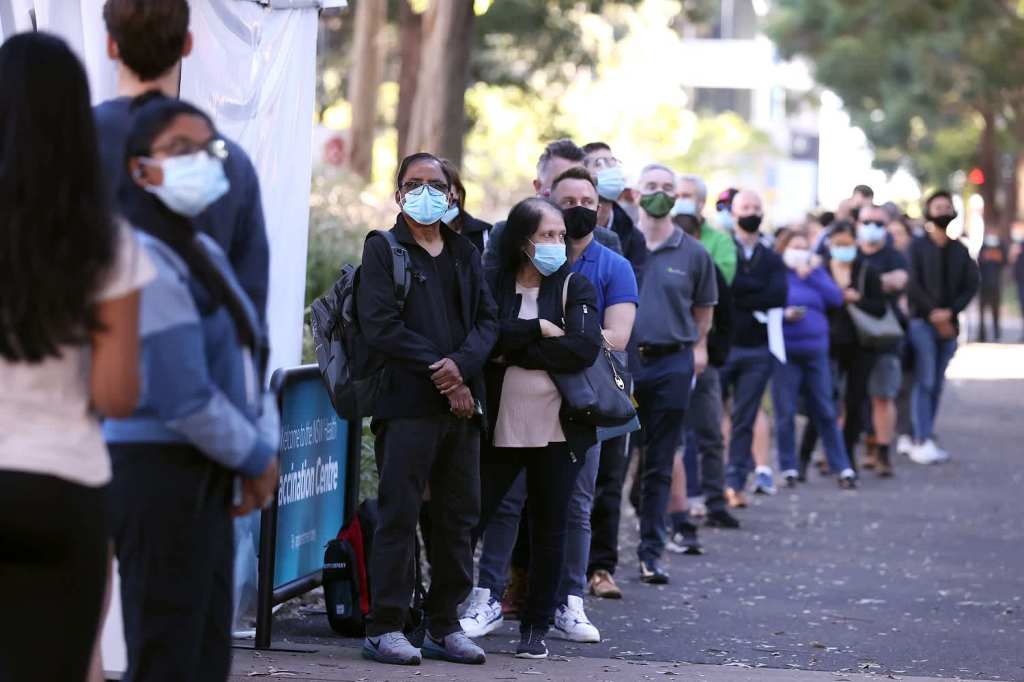Getting paid to get jabbed is a deal sweetener that looks set to roll out in some industries soon.
More than an incentive, the practice of giving workers paid leave to get their vaccines will help the most vulnerable workers make ends meet if they don’t have to weigh up the cost of a vaccine versus paying bills.
Australian think tank The McKell Institute argued in a recent report that a government-backed paid leave system would encourage casual workers to receive the jab, instead of delaying their immunisation over fears of lost income.
Giving full-time workers the right to paid vaccine leave should also be encouraged, they say, as workers might be hesitant to use their accumulated annual leave on getting a jab.
Australia has the lowest rate of vaccination of the OECD countries. Despite the vaccine rollout starting in April of this year, we’ve only managed to get at least one dose to 7.6% of our population. Other countries like America and the UK are sitting on 67% and 84% respectively.
So, would paid vaccine leave help us boost our numbers? And how would it work? Here’s what we know:
Paid vaccine leave could be coming
In a major step in this direction, 50,000 public servants across the state of NSW have recently been granted paid vaccine leave in a deal struck with local councils.
Multiple unions and the council body Local Government NSW have signed the deal, allowing 105 of the state’s 128 councils to sign on. It’s the first deal of its kind in Australia and could pave the way for similar deals in the private sector across the county.
NSW Premier Gladys Berejiklian has said that the NSW government will consider broader vaccine leave policies for its entire workforce, some 400,000 people in the state.
States do already offer payments for workers required to isolate after receiving a COVID-19 test or after having been exposed to a COVID-19 case.
The federal government also provides emergency payments to workers whose work is impacted by lockdowns lasting longer than one week, however, nothing yet exists for federal workers to access pay for vaccine leave.
When will the public sector get involved?
30 companies and businesses, including Commonwealth Bank, have been meeting with the head of the federal vaccine taskforce, Lieutenant General John Frewen, to discuss the role of the private sector in the vaccine rollout and what role they can play in it.
Some organisations and businesses are already offering flexibility for their staff in allowing them to take time out of their working days to get vaccinated. The National Australia Bank has been one of the first to do this and has been praised for its proactive nature in assisting the government’s slow vaccine rollout.
CommBank has recently signalled that it wants to introduce paid vaccine leave for its employees as a matter of priority too.
Matt Comyn, Commonwealth Bank CEO, told ABC Radio that meetings of business leaders with the government on the rollout of vaccine leave have been positive.
“At this stage, it’s very much about making it easy for our employees to get convenient access to the vaccine in the near term with paid leave,” he said. “We’re very supportive of corporate vaccination programmes and we’re very happy to provide that to our employees and their families as we normally would with the flu”.
Treasurer Josh Frydenberg was also at the meeting and has said that business leaders and the government have agreed to continue discussing whether employers could offer immunisations at work as well as looking at incentives that employers could offer.
This means that you could be getting your vaccine through your employer much like getting an annual flu shot, as some businesses offer.
Incentives for getting vaccinated have also been a hot topic recently and, as the rollout broadens and becomes more of an option to the general public, we could see more businesses offering freebies to those who get the jab.
Read more stories from The Latch and subscribe to our email newsletter.

